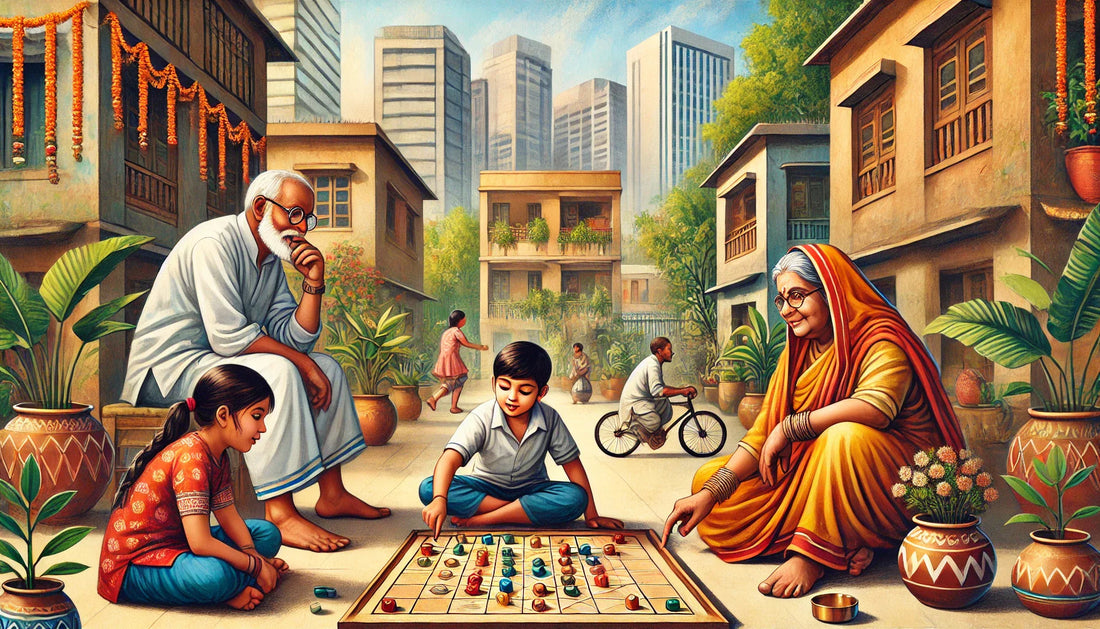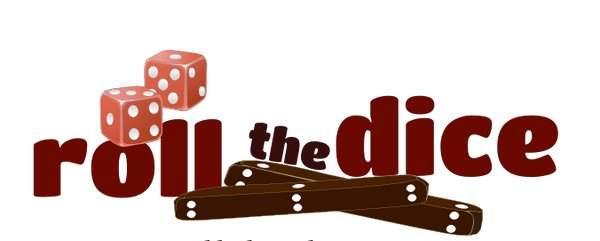
Unlocking Young Minds: How Traditional Board Games Boost Cognitive Skills in Children
Share
In today’s digital age, parents and educators are constantly seeking ways to engage children in activities that enhance their cognitive development. While modern educational tools have their merits, traditional board games like Chowka Bara, Pagade, and Aadu Huli hold timeless value. These games are more than just a source of entertainment; they are powerful tools for fostering critical thinking, problem-solving, and social skills in children.
In this post, we’ll explore the cognitive benefits of traditional board games and how they shape young minds to think strategically, solve problems creatively, and interact effectively. Let’s dive in!
The Cognitive Power of Play
Cognitive development refers to the way children acquire knowledge, solve problems, and process information. Activities that challenge young minds are essential for building neural connections. Traditional board games, with their complex rules and strategic demands, provide a rich playground for cognitive growth.
A 2016 study published in Frontiers in Psychology highlights how strategy-based games can improve decision-making and enhance memory in children. Games that involve planning and adapting to changing scenarios stimulate the brain’s prefrontal cortex, which governs executive functions such as problem-solving and focus.
Critical Thinking Through Strategy
Many traditional games encourage players to think several moves ahead, analyze their opponent’s strategy, and adjust their own approach. For example:
-
Chowka Bara: Players must calculate optimal moves to advance tokens while blocking opponents, requiring strategic foresight and adaptability.
-
Aadu Huli (Tiger and Goat): The asymmetrical roles of the tiger and goats demand creative problem-solving and strategic thinking from players.
Such games teach children the value of patience, the importance of planning, and the ability to adapt under pressure—skills that are invaluable in real-world situations.
Problem-Solving and Decision-Making
Traditional board games often present children with complex problems that require innovative solutions. For instance:
-
Pagade, an ancient dice game, involves assessing probabilities and taking calculated risks. Children learn to weigh potential gains against possible losses—a foundational skill for effective decision-making.
-
In Navakankari (Nine Men’s Morris), players must anticipate their opponent’s moves while devising strategies to form ‘mills’ (rows of three pieces).
By repeatedly solving game-related challenges, children develop resilience and a systematic approach to tackling problems—qualities that enhance their academic and personal lives.
Enhancing Memory and Concentration
Playing board games requires children to remember rules, track moves, and anticipate future actions—all of which strengthen memory and concentration. A study in the Journal of Applied Cognitive Psychology found that games involving memory retrieval improved recall and attention spans in young participants.
Games like Sholo Gutti and Taabla, which involve pattern recognition and memory recall, are excellent examples of how traditional games can bolster cognitive retention.
Developing Social and Emotional Skills
Beyond cognitive benefits, traditional board games are social activities that teach children essential interpersonal skills, including teamwork, communication, and empathy. Here’s how:
-
Turn-Taking and Patience: Waiting for their turn teaches children self-control and patience.
-
Sportsmanship: Winning and losing gracefully helps kids manage emotions and develop resilience.
-
Collaboration: Games like Alaguli Mane encourage cooperative play, fostering teamwork and mutual understanding.
These skills are critical for navigating relationships and working effectively in teams.
Connecting to Cultural Roots
Traditional Indian board games not only promote cognitive development but also instill a sense of cultural pride and awareness. Games like Chaturanga (the precursor to chess) and Aadu Huli are steeped in history and folklore, offering children a connection to their heritage. By engaging with these games, children gain a deeper appreciation for their cultural legacy.
At Roll the Dice, we’ve reimagined these classics with premium-quality game sets that make learning fun and engaging for kids of all ages. Explore our collection today to find the perfect game for your family.
How to Introduce Traditional Games to Kids
Here are some tips for parents and educators to make traditional board games a part of children’s routines:
-
Start with Simple Games: Choose age-appropriate games to ensure the child doesn’t feel overwhelmed.
-
Make It a Family Activity: Playing together strengthens family bonds and encourages children to value quality time.
-
Encourage Friendly Competition: Focus on the joy of playing rather than winning.
-
Use Storytelling: Share the cultural stories behind games like Chowka Bara or Aadu Huli to make the experience more enriching.
-
Limit Digital Distractions: Dedicate specific times for board games to foster undivided attention.
Final Thoughts
Incorporating traditional board games into a child’s routine is a simple yet effective way to nurture cognitive and emotional development. These games teach children to think critically, solve problems, and connect with their heritage—all while having fun.
Ready to introduce your child to the joys of traditional board games? Visit Roll the Dice to discover handcrafted, culturally inspired game sets that bring learning and play together seamlessly.
Share this post with fellow parents and educators who are passionate about holistic child development. Together, let’s unlock the potential of young minds through the magic of traditional board games!
